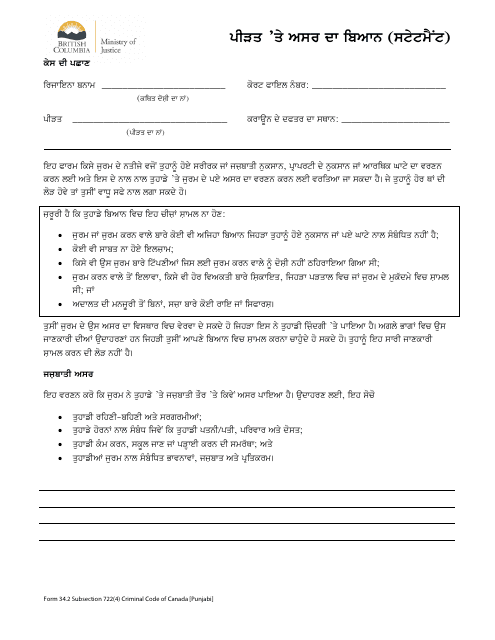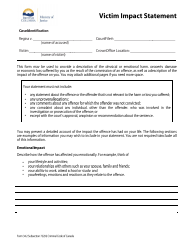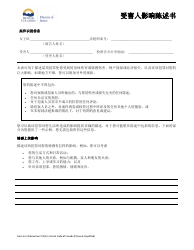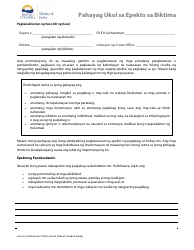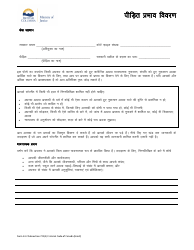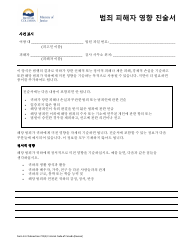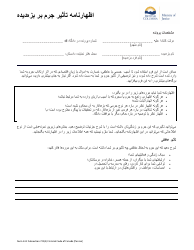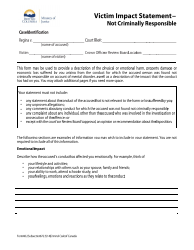Form 34.2 Victim Impact Statement - British Columbia, Canada (Punjabi)
Form 34.2 Victim Impact Statement in Punjabi is used in British Columbia, Canada. It is designed for individuals who have been victims of a crime to provide information about the physical, emotional, and financial impact of the crime on their lives. This statement allows the victim to express their feelings, concerns, and opinions to the court during the sentencing phase of a criminal trial. It helps in ensuring that the court has a comprehensive understanding of the impact the crime has had on the victim and assists in determining an appropriate sentence for the offender.
In British Columbia, Canada, the Form 34.2 Victim Impact Statement (Punjabi) is filed by the victim of a crime or someone affected by the crime. This form allows individuals to share how the crime has affected them physically, emotionally, or financially. By filing this statement, victims have an opportunity to speak about their experiences and the impact the crime has had on their lives.
FAQ
Q: What is Form 34.2 Victim Impact Statement?
A: Form 34.2 Victim Impact Statement is a document used in the province of British Columbia, Canada. It allows victims of a crime to provide a statement describing the impact of the crime on their life and well-being.
Q: Who can fill out Form 34.2 Victim Impact Statement?
A: Any person who was a victim of a crime in British Columbia can fill out Form 34.2 Victim Impact Statement. This includes individuals who were directly affected by the crime, as well as close family members or dependents of the victim.
Q: What information should be included in Form 34.2 Victim Impact Statement?
A: Form 34.2 Victim Impact Statement asks for information about the victim's personal background, the details of the crime, the emotional, physical, and financial impact of the crime, and any additional comments the victim wishes to provide.
Q: Is it mandatory to fill out Form 34.2 Victim Impact Statement?
A: Filling out Form 34.2 Victim Impact Statement is voluntary. However, it is an opportunity for victims to have their voice heard and express the impact of the crime on their lives. The information provided in the statement can be considered during sentencing or parole hearings.
